Iranian MP Calls For Death Of Hijab Official Over Same-Sex Video
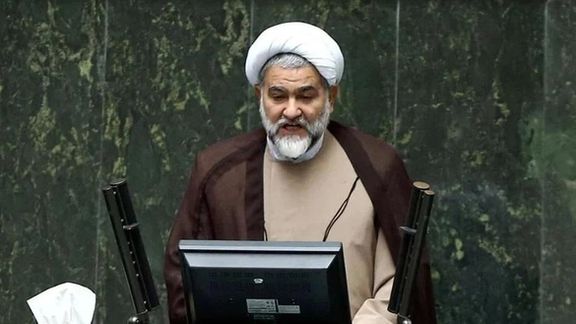
A senior Iranian lawmaker has said Reza Seqati, a director from Iran's culture ministry, deserves "to be thrown off the mountain" for having sex with another man.

A senior Iranian lawmaker has said Reza Seqati, a director from Iran's culture ministry, deserves "to be thrown off the mountain" for having sex with another man.
Seqati, the former director of Iran's Ministry of Culture and Islamic Guidance in Gilan province, that acts as a hijab watchdog, was dismissed last month after a sex tape with a young man was leaked online. The video swiftly spread across social media platforms, raising a storm of controversy and public outcry.
On Monday, Hassan Norouzi called for the severest punishment. "If the allegations against Reza Seqati are substantiated, there is an unequivocal necessity for imposing stringent consequences. He must face the full force of the law and be shoved off the mountain and be killed to teach a lesson to others."
Seqati, who is married with three children, is a staunch advocate of mandatory hijab. During his tenure at the ministry of culture, he has made many attempts to enforce conservative cultural norms within the Gilan province. His initiatives included the launch of a hijab hypermarket and the establishment of a hijab exhibition, both aimed at promoting "Iranian-Islamic culture."
Shortly after the incident occurred last month, Iran's parliament speaker Mohammad Bagher Ghalibaf criticized not the content of the video but the act of leaking it to the public, saying that goes against Sharia law. This is a typical response from the regime, to focus on discrediting the source of evidence, rather than addressing the underlying issues of corruption or forbidden activities.
However, Sharia in Iran clearly forbids homosexuality among men and says it is punishable by death, a stance which now seems to be taken by the government.
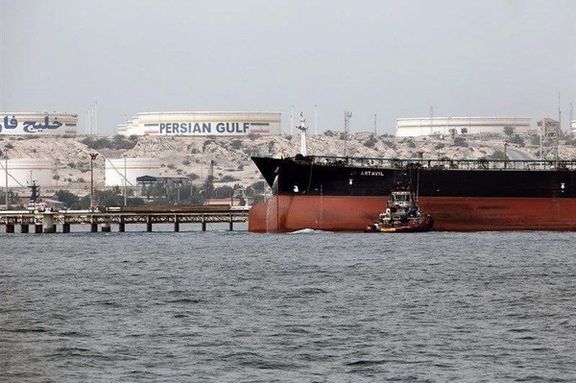
After the US-Iran hostage release deal, a report said Monday that Tehran boosted its oil exports to levels not witnessed since 2017, when there were no sanctions.
TankerTrackers.com that monitors global oil shipments, reported that in the initial 20 days of August, Iran dispatched an average of over two million barrels of oil daily, marking a more than 30-percent surge compared to the past few months.
Bloomberg and others who reported on the development did not offer a specific reason, but except the agreement announced in mid-August that the United States allowed the release of $6 billion of Iran’s money frozen in South Korean banks in exchange for five American hostages, no particular event or decision can be cited.
Iran’s oil exports began to decline in 2018 when former US President Donald Trump withdrew from the JCPOA nuclear accord in May 2018 and imposed third-party sanctions on Iran’s oil exports and international banking. By 2019, Iran was barely shipping 250,000 barrels per day and according to some of its senior officials at the time, it was earning less than $10 billion a year.
Changes started in late 2020 when Joe Biden won the US presidential election. In September of that year, he declared in a CNN op-ed that he aimed to reverse Trump’s decision and resurrect the Iran nuclear deal. China immediately increased Iranian oil purchases, pushing exports to about 700,000 barrels per day by mid-2021. During this period, Tehran engaged in indirect negotiations with Washington concerning the JCPOA, which persisted for 18 months without yielding any results.
After Washington announced last October that it was no longer pursuing the revival of the Obama-era deal, secret talks apparently continued with Iran, eventually resulting in the hostage release agreement. However, numerous media reports have indicated that the deal with Tehran goes far beyond the cash-for-hostages deal and the Biden administration has also agreed not to enforce sanctions in return for Iran slowing down its uranium enrichment.
The news of shipping 2 million barrels of oil per day appears to be the first indication that US oil sanctions on Iran are virtually defunct.
Although Iran is selling the oil with discounts to China and possibly to others now, even a $50/barrel price tag will bring in more than $100 million a day for Iran’s cash-strapped regime.
The only thing standing on the way of a $40 billion annual cash revenue for Tehran now is the US banking sanctions. So far, Iran has been unable to repatriate a significant part of the oil revenues in cash US dollars or other hard currencies. If Chinese and other third-country banks feel the US will look the other way, that restriction will also disappear.
Iran has shown no indication of having changed its anti-West foreign policy, or its malign behavior in the region. As a matter of fact, the United States has beefed up its naval and air power in the Persian Gulf in recent months, concerned that Tehran can continue threatening commercial shipping.
US Republican lawmakers and others who have already voiced serious concern with the hostage deal will see Iran’s oil export data as a vindication of their warnings that President Biden has made a secret deal with Tehran, with no Congressional oversight, as the law requires.
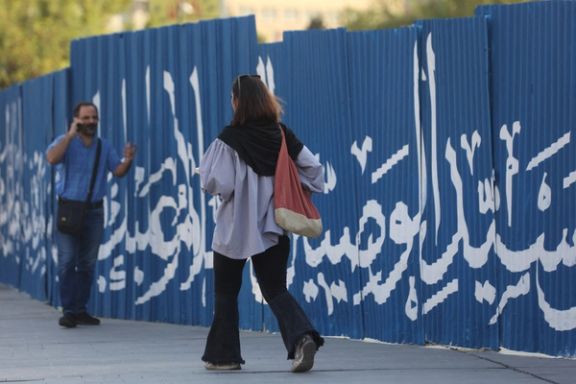
Controversy still surrounds Iran’s new hijab law, with a reformist daily calling it a decision made by 10 parliamentarians for a population of 85 million.
In an article published on Monday, Ham-Mihan newspaper stated, “Only 10 members of the parliament, with a certain political inclination, passed a bill in a week that is expected to impact the lives of 85 million Iranians, including dissidents.”
The paper added that the law will lead to accusations against a significant portion of society over issues related to women's dress code and hijab. Details about the enactment of the new bill are still unknown, as parliament moved earlier in August to make the new hijab regulations even more opaque by approving the regulations without an open session, fearing further backlash.
Iranian lawmakers voted that the bill can be considered under Article 85 of the constitution, which allows the parliament to delegate the bill's approval to an internal committee, effectively sidelining any opposition.
According to Ham-Mihan, the internal committee consists of the same lawmakers who added about 55 articles to the original "Hijab and Chastity" bill, which initially comprised only 15 articles when submitted by the administration of Ebrahim Raisi.
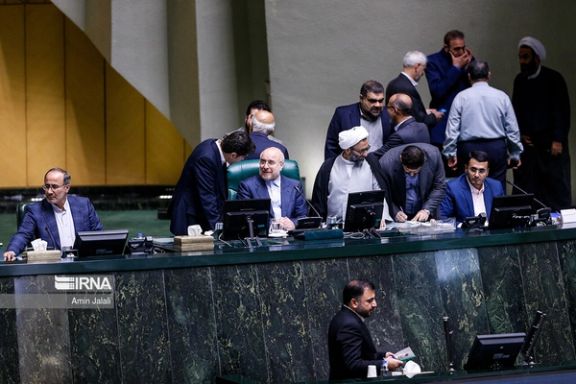
The paper quoted Parliament Speaker Mohammad-Bagher Ghalibaf as saying that discussing a bill with 70 articles in an open session would take a lot of time, especially because about 1,500 points have been suggested by lawmakers to be considered during the discussions. “Some say the parliament is reviewing the bill under Article 85 of the Constitution so that no one understands what is being approved, but this is not true,” Ghalibaf said.
The uprising sparked by the death in police custody of Mahsa Amini in September 2022 has made it increasingly difficult for the clerical regime to enforce the mandatory Islamic dress code. Since the beginning of the ‘Women, Life, Freedom’ movement, tens of thousands of girls and women have shed their compulsory hijab. The regime seeks to criminalize hijab defiance, but no branch of government wants to be solely responsible for the complications of such a provocative and risky action in society.
The fate of the hijab bill, which legal experts claim is against the Iranian Constitution and not practical to implement due to the government's limited means, is still in limbo as conflicting reports circulate about the process. But what is clear is that the government has to devote extensive police and other resources to monitor millions of women, stop those who appear without hijab, issue fines or summon them to court.
This means thousands of confrontations in the streets every day between ordinary women and teenage girls with police and special hijab enforcement agents. It was one such confrontation and arrest that led to Mahsa Amini's death and the most serious antigovernment unrest in 44 years.
Some wonder why the regime has chosen to go the extra mile to force hijab on women, risking another round of protests. Hardliners have answered the question, insisting that the clerical regime cannot retreat from the hijab issue, otherwise it will lose its authority to control the society.
Lawmakers are still voicing opinions and disagreements about how the bill should receive its final seal of approval. Apparently, once the committee approves a bill under the particular constitutional provision, the full chamber has no right to alter it. The Guardian Council, which has the right to review all legislation, will probably review the hijab law too.
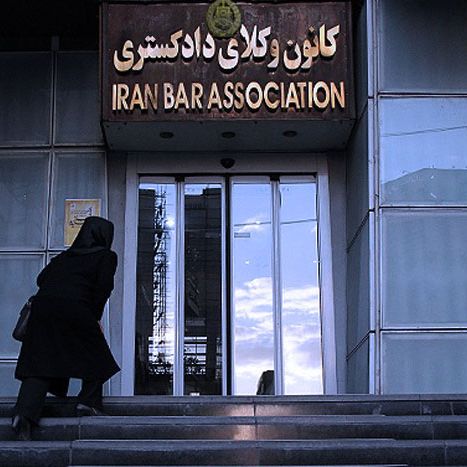
Controversy has erupted within the legal community in Iran as attorney license authority moves away from independent bar associations to the government.
During an open session of parliament on Monday, a new clause was passed into the resolution, compelling bar associations to adhere to decisions made by the Regulatory Board of the Ministry of Economy.
Lawyers across the country are outraged at this decision. Hassan Safadoust, head of the Central Bar Association, said, "The parliamentary resolution granting authority to the Ministry of Economy for issuing, extending, and revoking attorney licenses runs contrary to international legal norms, documents, and agreements."
In defiance, the board of directors of the Alborz Bar Association unanimously announced the cancellation of its scheduled activities.
Numerous lawyers have highlighted that the "parliamentary resolution pertaining to bar associations contradicts overarching judiciary policies."
Ali Pazouki, head of the Zanjan Bar Association, warned that the resolution could have irrevocable implications for the country, transforming the judicial system into a "commercial enterprise" and lawyers into "illicit traders and delinquents."
Mohammad Shivaei, a lawyer and member of the Central Bar Association, expressed his concerns on the social networking site X (formerly known as Twitter), stating that the parliamentary resolution relinquishes the authority of the legal profession and the right to defense to the government and the Ministry of Economic Affairs.
The Bar Association, as a long-standing professional and legal institution in Iran spanning four decades, has consistently encountered pressures from governmental bodies and the judiciary, resulting in gradual diminishment of its autonomy and authority through the enactment of various laws.
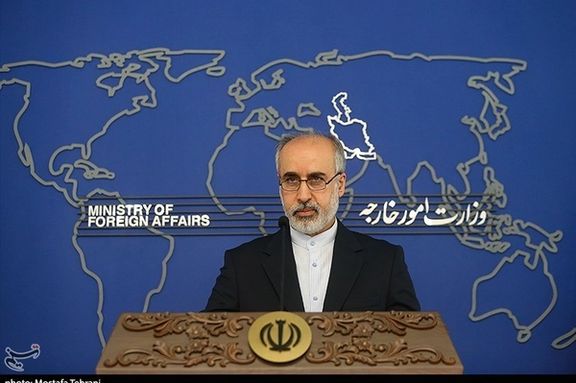
The process of releasing US prisoners held in Iran will take up to two months, Iran's Foreign Ministry Spokesperson Nasser Kanaani said Monday during a press conference.
"A specific time frame has been announced by relevant authorities, and it will take a maximum of two months for this process to take place," Kanaani said.
Earlier this month, Tehran and Washington reached an agreement whereby five US citizens held hostage in Iran would be freed while $6bn of Iranian assets frozen in South Korea would be released.
Iranian assets that had been frozen in South Korea were transferred to Switzerland's central bank last week for exchange and transfer to Iranian bank accounts in Qatar, South Korean media reported on Monday.
The deal foresees the funds remaining in Qatar to be spent on Iranian imports of food, medicine and other “non-sanctionable” goods. The US insists it will have oversight to make sure that the funds are not used for other purposes, however, Iran has said it has full control over the money.
Washington would also release some Iranians from US prisons, Iran said.
Iran allowed four detained US citizens to move into house arrest from Tehran's Evin prison, a lawyer for one said. A fifth was already under home confinement.
The deal has led to criticism in the United States by those who say the $6 billion is essentially a ransom paid for the hostages and it will only encourage Iran and other actors to detain Americans and demand money or concessions. Twenty-six Republican Senators have written to President Joe Biden demanding clarifications. Critics also argue that the money will provide Iran with the ability to spread its terror activities and other malign acts.
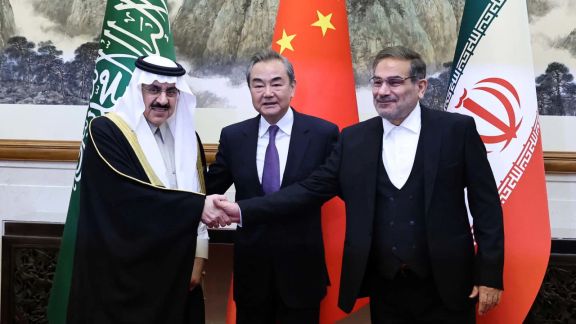
China's Ministry of Foreign Affairs has released a statement highlighting the positive improvement of diplomatic ties between Iran and Saudi Arabia.
The statement, released on Monday, referenced a telephone conversation between China's Foreign Minister, Wang Yi, and his Iranian counterpart, Hossein Amir-Abdollahian, discussing the ongoing efforts to foster better relations. Wang Yi underscored China's unwavering support for Tehran's core interests, leading to what he termed a "wave of reconciliation" in the Middle East.
The mediation by China resulted in a notable détente between Iran and Saudi Arabia earlier this year. Wang Yi commended Iran's initiatives in fortifying its relationship with Saudi Arabia, which included a significant meeting between Amir-Abdollahian and Saudi Arabia's Crown Prince Mohammed bin Salman in Jeddah.
"China appreciates the correct decision made by the Iranian side," Minister Wang Yi noted, reaffirming China's steadfast commitment to encouraging diplomacy in the region. He also emphasized the urgency of reinstating the Joint Comprehensive Plan of Action (JCPOA) to comprehensively address the Iranian nuclear issue.
In recent years, Iran's nuclear program has sparked international debates. While Iranian authorities have expressed a willingness to engage with the West, certain elements within Iran have signaled a more assertive stance. A report released in March, suggests that Iran has been producing uranium enriched to 60% purity — a level for which experts say Tehran has no civilian use.
Negotiations to revive the JCPOA commenced in 2022 and have faced several obstacles. Despite international diplomatic efforts, Iran continued to augment its enriched uranium stockpile, raising concerns over its nuclear ambitions and its capability to weaponize nuclear materials.